For the last seven years, I’ve been working with colleagues Cam Fink and Rob Heath to make a film, Puskás in Australia. We never intended it to take so long, but it’s been a gargantuan project, involving thousands of hours of work and we’ve fit it around other careers. Indeed it’s been largely edited via Zoom, especially during the lockdowns, with editor and co-director Cam living in Wellington and Rob and myself in Melbourne. It’s a follow up to Sepia Tones’ debut sports history film, The Galahs which you’ll find on Stan, Foxtel and Docplay and which tells the story of Harry Beitzel’s World Tour with a bunch of VFL footballers in 1967.
Puskás in Australia is about the great Hungarian striker, Ferenc Puskás, and his arrival and tenure as coach of South Melbourne Hellas from 1989-92 including the famous 1991 championship win. In the fifties and sixties, Puskas ranked alongside Pelé as the greatest footballer on the planet. He scored 84 goals in 85 internationals for Hungary before his international career was cut short by the tragedy of the 1956 Russian crackdown. Exiled, he joined Real Madrid and was top scorer in La Liga four times and helped the club to six titles, all after the age of 32. Famously, he scored four goals in the 1960 European Cup final against Eintracht Frankfurt. He was the sport’s first true international superstar. As Postecoglou says in the opening to both the film and trailer (above):
If you did a poll of a hundred journalists or people who know football and said ‘name the ten best players of the last century’, ninety percent would have him in it.
And yet this titan of the game finished his five decade football journey in the small pond (internationally speaking) that was Australia’s National Soccer League. Puskás lived with his wife Elizabeth in Ashwood, Melbourne, behind a garden supply business run by his Hungarian friends, Arpi and Val. He didn’t drive, so Ange drove him to training in his old Datsun 200b and a bond was forged.
The man they called ‘The Boss’ was an unpretentious and endearing figure, and our South Melbourne interviewees tell warm and often hilarious stories about their brush with legend. Ange, especially, talks about the managerial lessons he drew from Puskas, particularly when it comes to dressing room harmony.
We’ve loved making this documentary. I’m biased, and the field is small, but I think it might be the best historical football film made in Australia, and a contender for best archival sports film. There’s no voiceover, the actors tell the story, there are cameos from Les Murray, George Donikian, Craig Johnstone and Idris Elba (yes Stringer Bell from The Wire presented FIFA’s Puskas Award!) and with the Premier League ascendence of Ange Postecoglou, it feels like this is the moment for our doco.
Nor is it just a sporting story. It’s also an immigration story. We have a ten minute section in the film dedicated to the immigration experience, the path so many Greeks and Hungarians took from war ravaged homeland, to Station Pier in Melbourne, to government housing and factory jobs, to building small businesses, to building a community, to establishing ethnically affiliated football clubs. As Lazaros Papasavas, son of the late South president Sam Papasavas says:
There were many Greek clubs, but there was one shining Greek club, and that was South Melbourne Hellas soccer club.

We explain why Puskas settled at South Melbourne, and why he was in Australia in the first place. It was the Hungarian community who brought him out, and we have incredible footage of the 62 year old Puskas playing at a Kék Duna/ Parkmore Old Boys game, round of belly but so gifted with that famous left boot. The wider world hasn’t seen these beautiful images, set in the peaceful green surrounds of Keysborough. Thanks so much to Sandor Rind and Alex Varga for helping us track that down. And thanks to Paul Mavroudis and Roy Hay who were instrumental with Greek community and NSL archives.
So here’s where we are at. Puskás in Australia is now almost complete as a final cut. Composer David Bridie is placing music next week, after what promises to be his superb career retrospective gig at the Atheneum this Saturday night. (Buy tickets!)
Then, [cue melancholic Hungarian folk song, maybe a violin? 🎻] with our film complete, we again press pause.
Why? Well, Cam, Rob and I embarked upon this project before we obtained any film funding. We did the interviews, we sourced the archival materials, we put in the hours without payment. It took us seven years, but we’ve finished the film (save for colour grading and audio post). Unfortunately, we’ve discovered again that archival films with a great deal of archival material are expensive, because licensing the footage and photos from the copyright owners is expensive. We have more than 21 minutes of matchday footage and the ABC (host broadcaster of NSL1989-92) charges a bulk rate of $70 per second for worldwide rights in perpetuity. Reuters charge $75 a second. SBS is $80 a second. FIFA is over US$250 per second and they demand a minimum spend.
We have been attempting to fundraise for the last few years, but haven’t really made a dent in the total required. This is despite some incredibly generous donations, and I have to name Lazaros Papasvas and Tim Heath who gave significant amounts and enabled us to reach final cut stage. Their names will be in our opening titles.
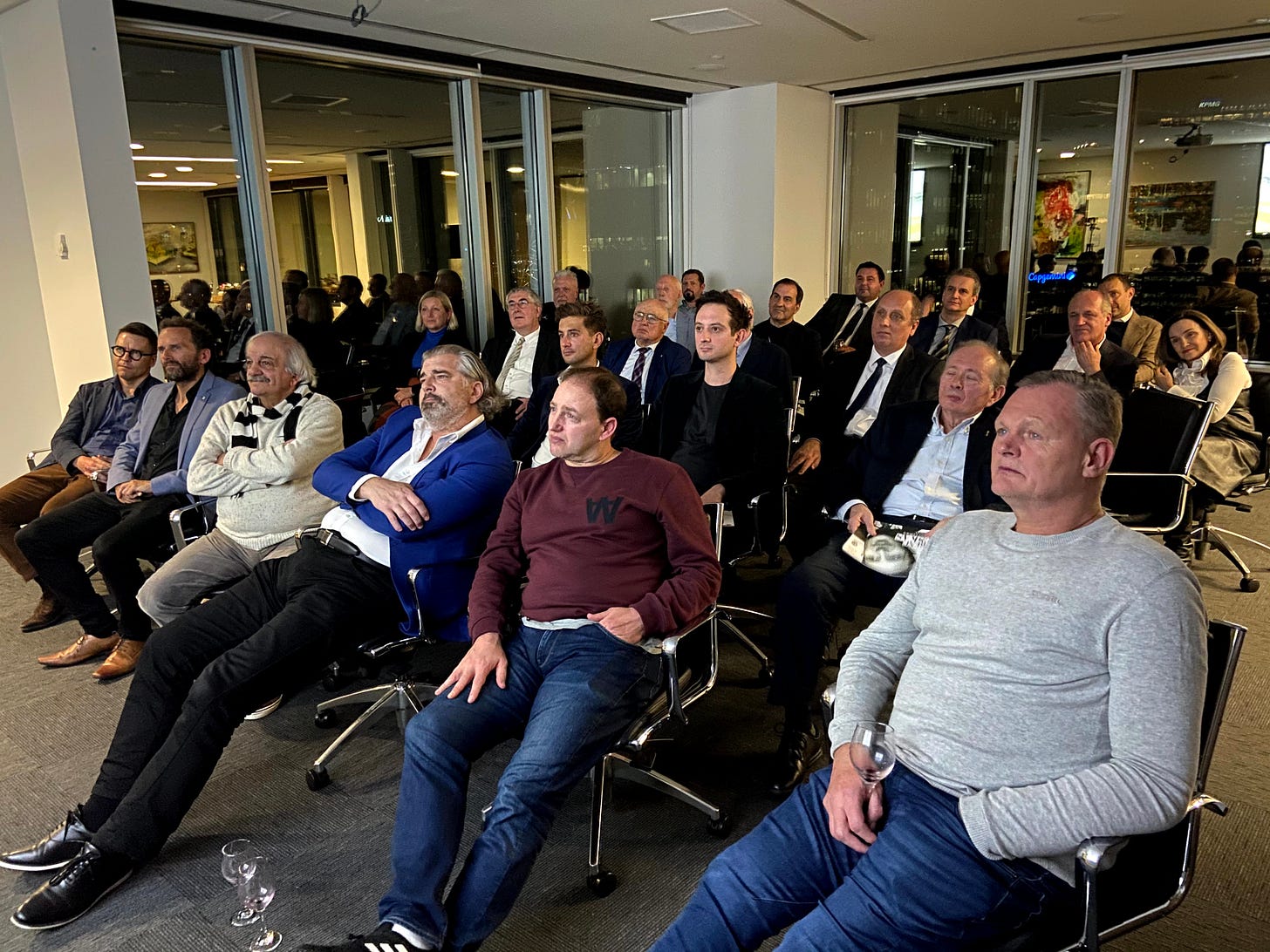
We’re also grateful to the generous supporters who have given us crowd funding support through the Documentary Australia Foundation website. ‘Puskas in Australia’.
Donations through DAF website are tax deductible.
Realistically, Puskás in Australia might need a white knight. It might be a football organisation or club (anyone know if Real Madrid has any money?😊) , a film funding body, a corporate sponsor, or a person or group of people who’ll push a story about football, Puskás, his Australian-Hungarian connection, the establishment of Melbourne’s Greek community, South Melbourne Hellas and the origin story of Ange Postecoglou to a worldwide audience, both at film festivals and through streaming.
If you or someone you know can help, please get in touch. Or if you are in the business of purchasing films for broadcast. Or if you’re a film agent and think you can make the sale to a broadcaster or streaming service.
We’re very happy to send a confidential link to the film to interested parties.
So that’s the pitch, and the trailer (top of page). Share it around if you don’t mind.
We can make it happen! I’m sure of it.
Football history stories need to be preserved. Immigration stories need to be celebrated. Puskas in Australia will resonate around the world.


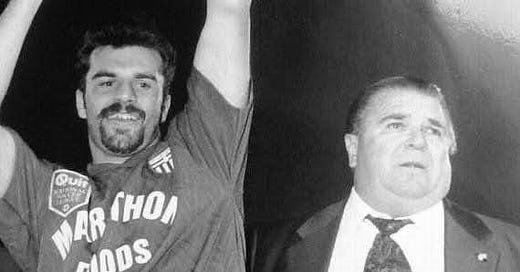



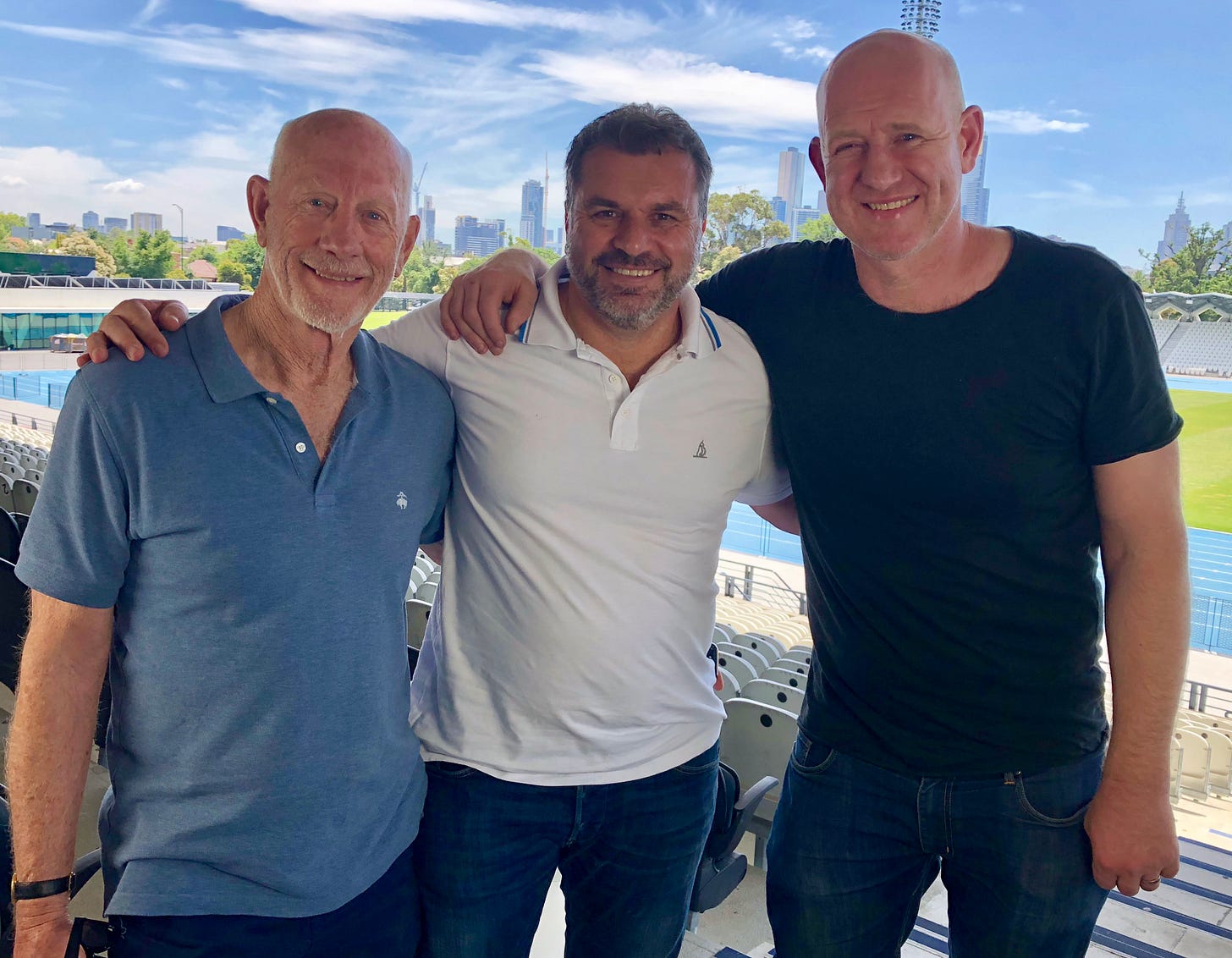
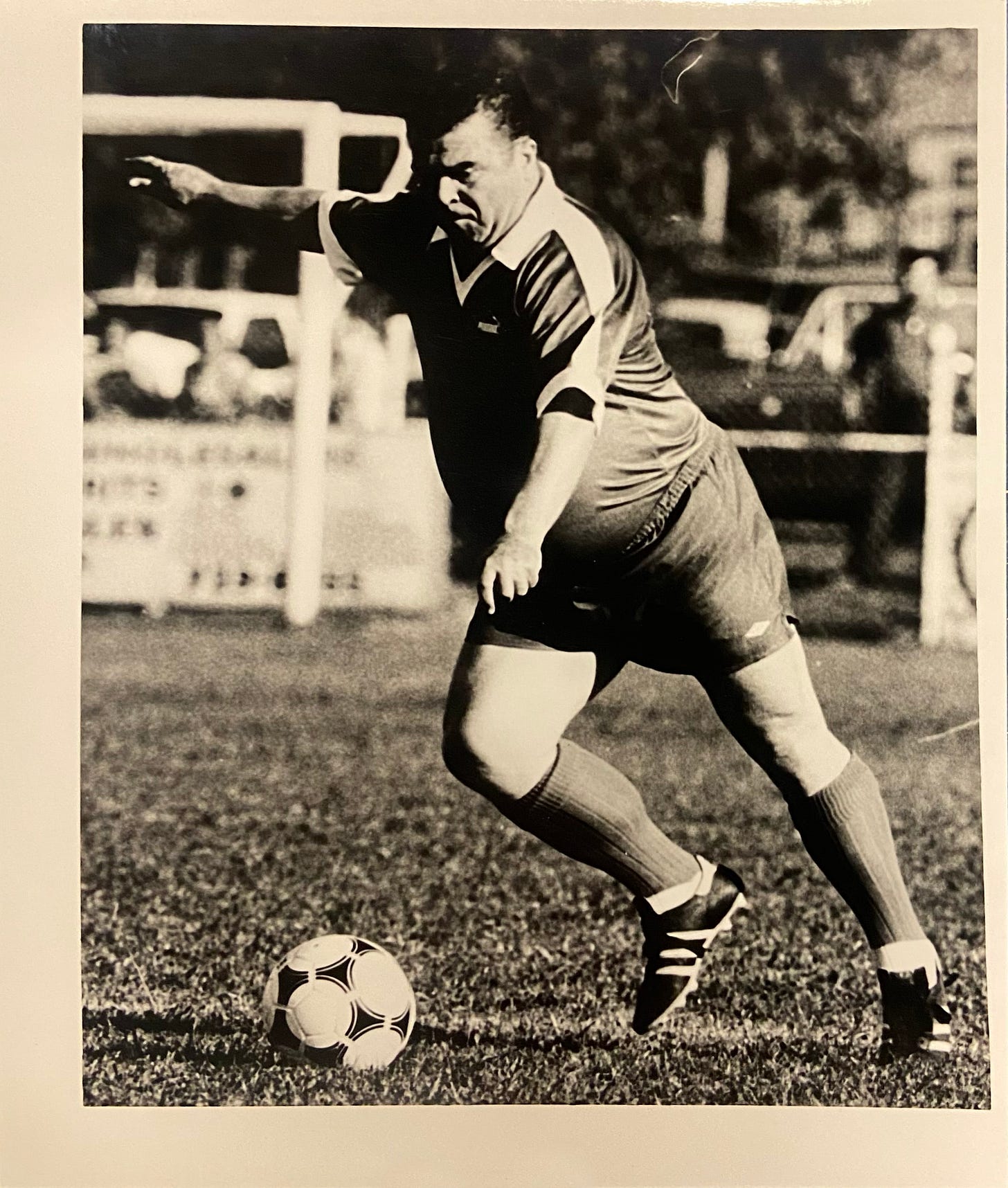


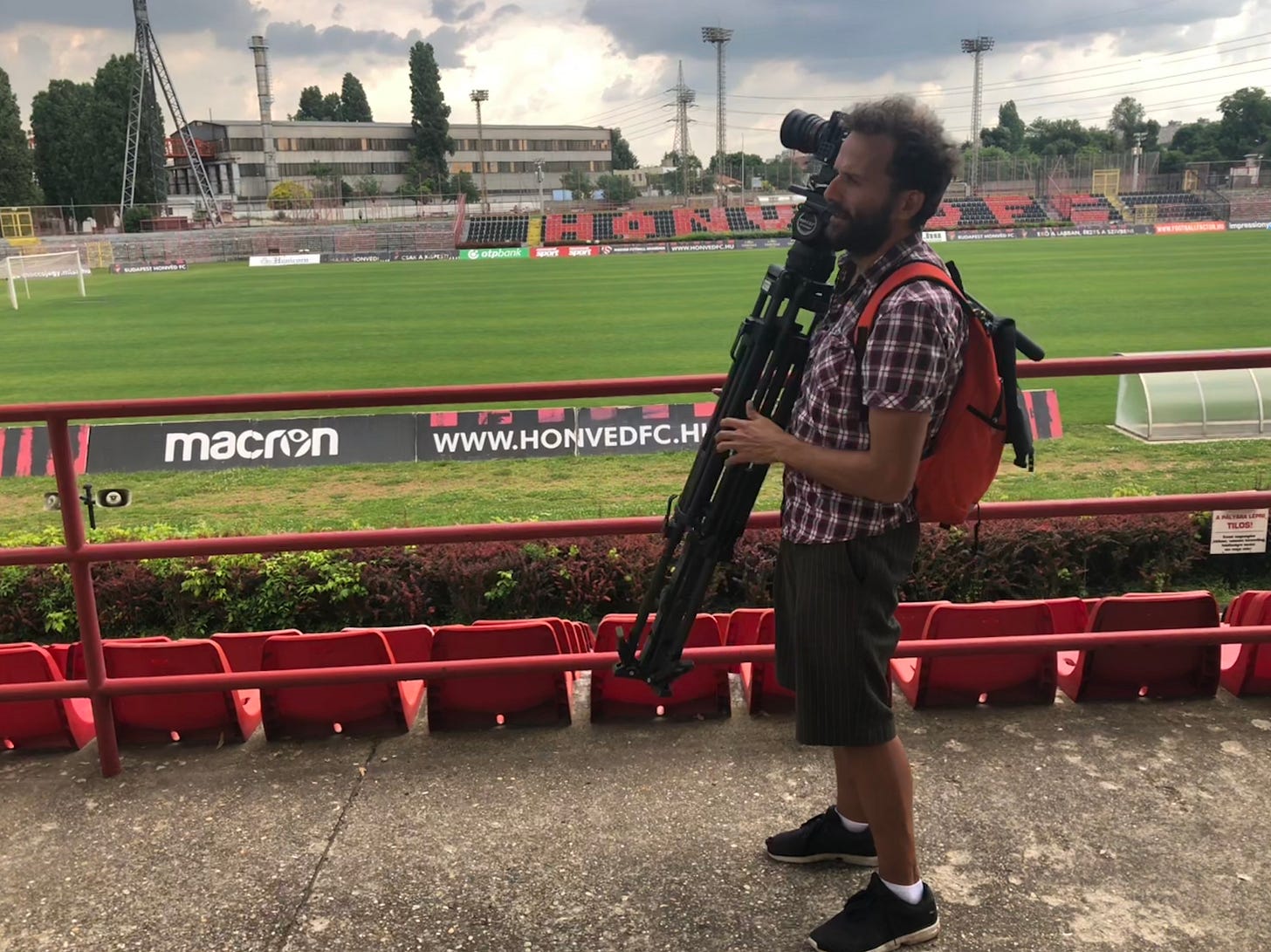
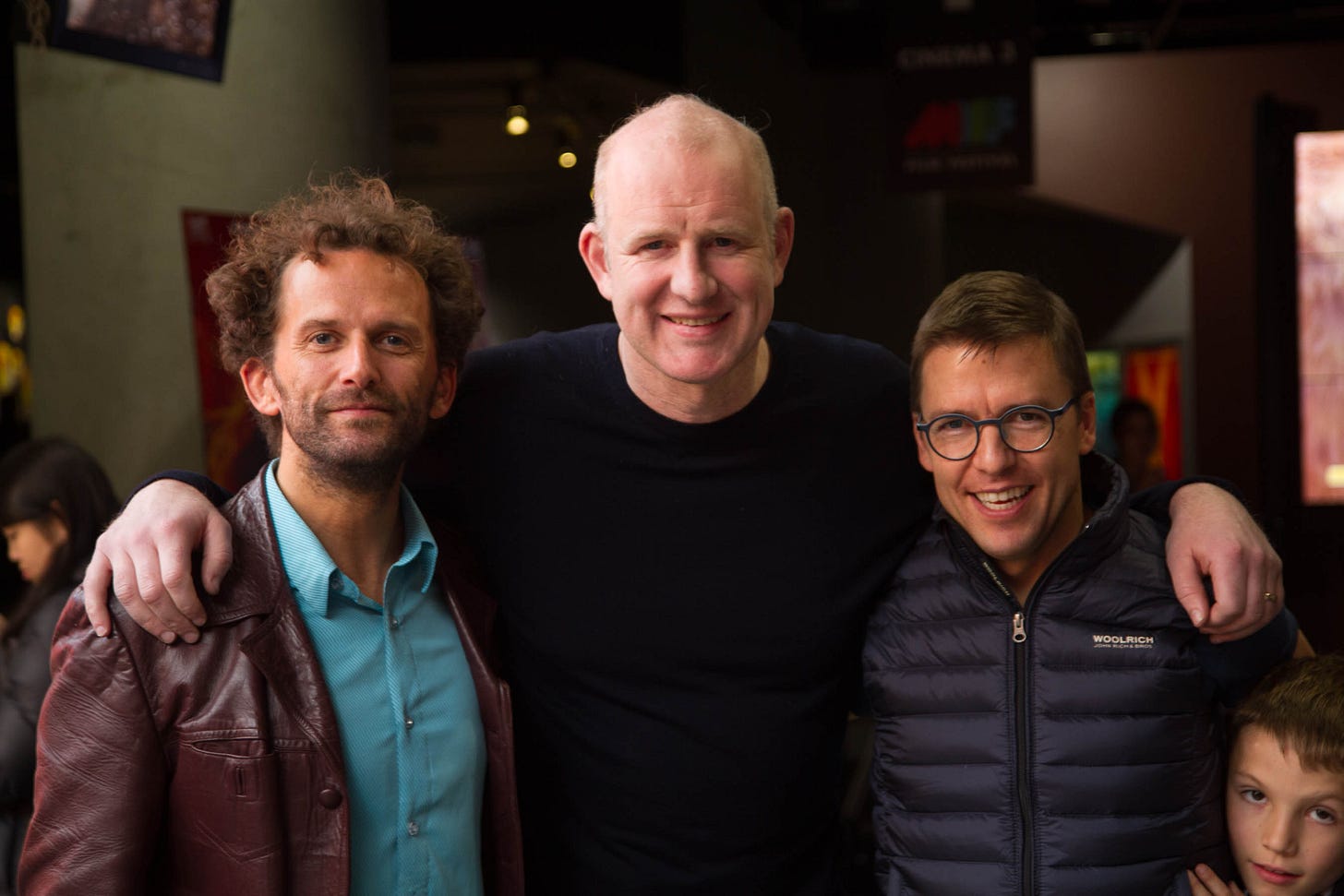

Share this post